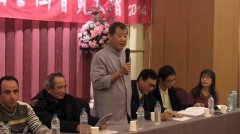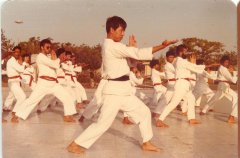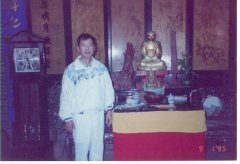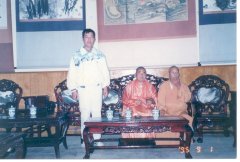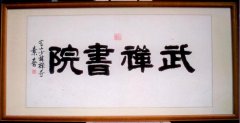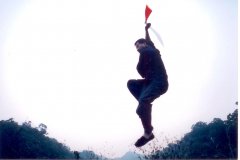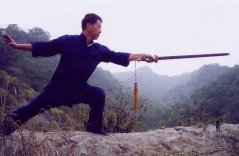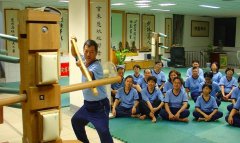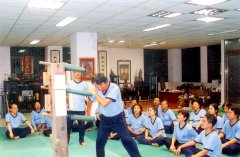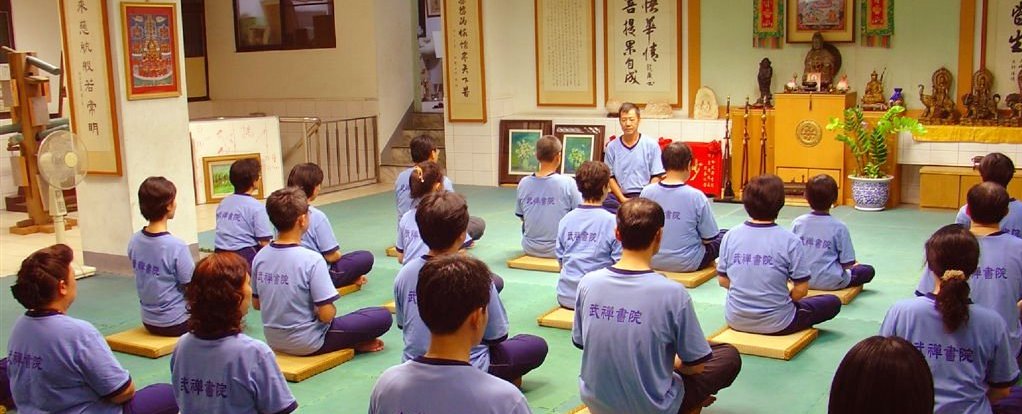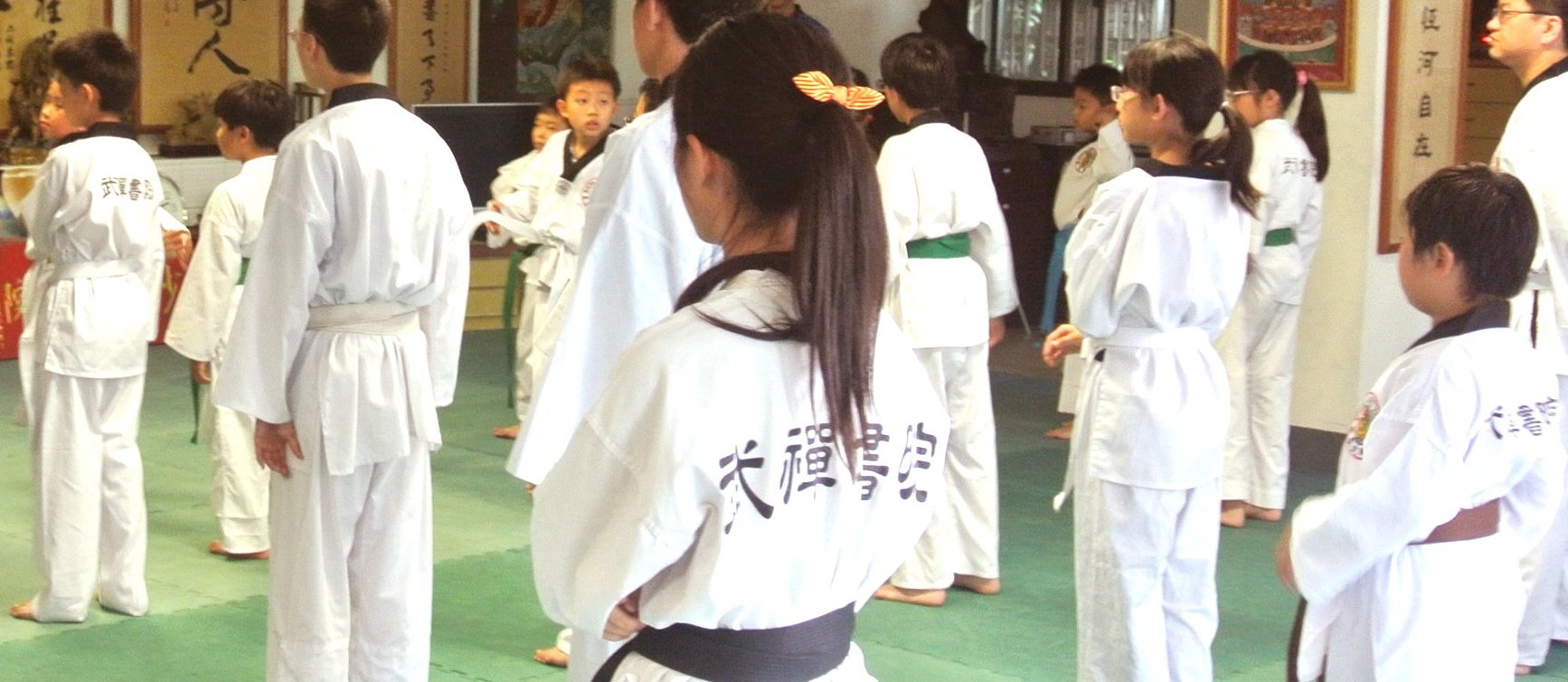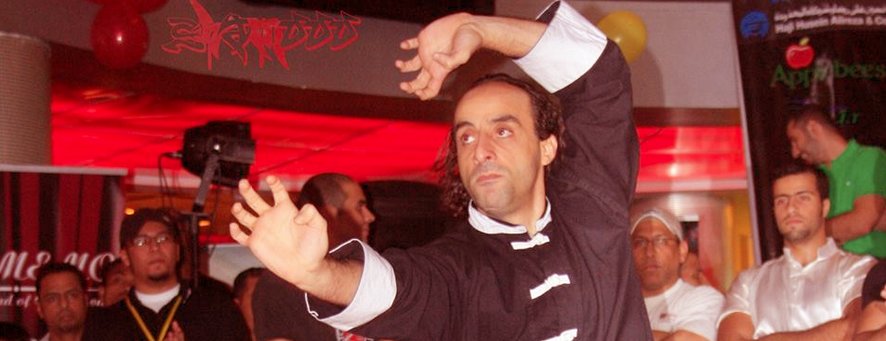
The Godfather of WUZEN Academy and the Zen Farm:Master Ho, Fu-Shuang
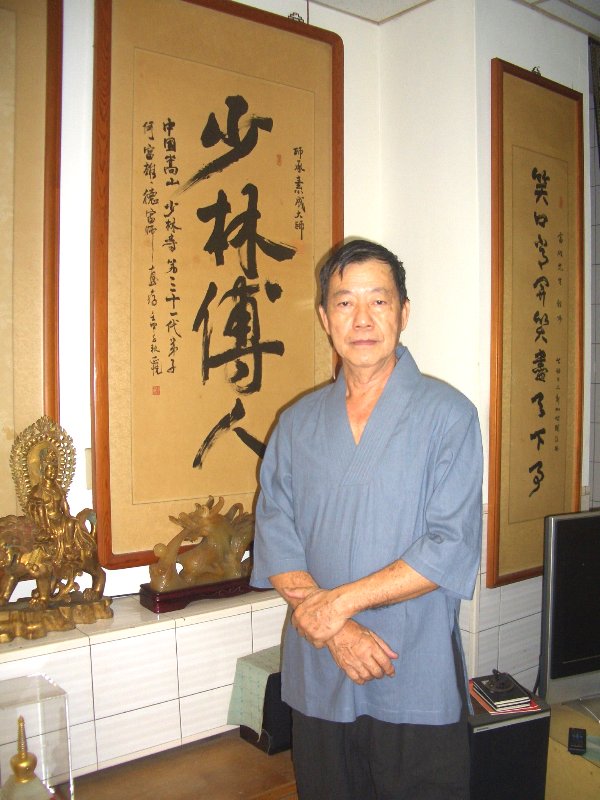 Master Ho Fuh-Shuang on November 23rd, 1943 in the city of Tainan. He was able to attain an excellent wushu foundation at a young age because he started learning ancestral何家拳 since he was a child. The exact founding time of何家拳 cannot be identified, but from historical texts it can be traced all the way back to general Ho during the war between Zheng Chenggong (Koxinga) and the Dutch [citations needed]. After passing down for generations, 何家拳 has become an essential wushu foundation for every member of the Ho family.
Master Ho Fuh-Shuang on November 23rd, 1943 in the city of Tainan. He was able to attain an excellent wushu foundation at a young age because he started learning ancestral何家拳 since he was a child. The exact founding time of何家拳 cannot be identified, but from historical texts it can be traced all the way back to general Ho during the war between Zheng Chenggong (Koxinga) and the Dutch [citations needed]. After passing down for generations, 何家拳 has become an essential wushu foundation for every member of the Ho family.
Throughout his early lifetime, master Ho has excelled in a variety of wushu systems including Judo, Kendo, and Karate, all with a high dan (段) accomplishment. It was not until master Ho was in his thirties did he met the most important mentor of his life–grandmaster Tong (童金龍), the founder of Rou Chyuan Do. Master Ho apprenticed for over thirty years and grasped the essence of Chinese traditional Rou Chyuan wushu passed down from grandmaster Tong, making him one of the most prominent disciples. In addition, master Ho also practiced under master Kao (高道生) of the Northern Mantis style Changquan (北派螳螂長拳) and master Wong (王振華) of the Shandong province Chen style Taichi. It is usually rare in the traditional wushu culture for a practitioner to master and accumulate experience in multiple different disciplines. Master Ho however, is an exception and thus he is truly a master of the martial arts. Also, because master Ho is dedicated to the spreading and coaching of wushu in the international society, he was recommended by the Research Center for World Arts and Cultures (世界文化藝術研究中心) in 1996 and recorded into Who’s Who in the World [citations needed] as an individual with extraordinary contribution towards the international community.
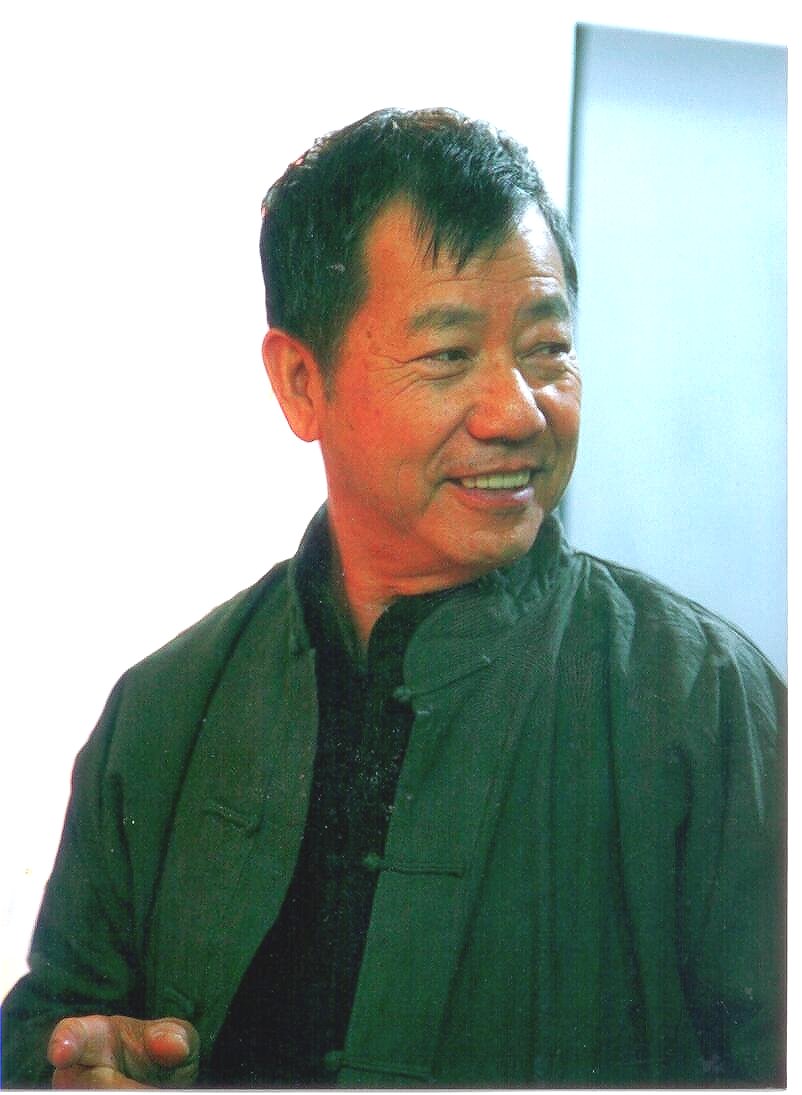 Apart from wushu training, master Ho is also skilled in the field of artistry, including music and painting, and devoted to the spiritual domain, concerning zen and medication. From practicing both martial arts and cultivating qi, master Ho is able to achieve a harmonic balance between wu and zen. The history of how “wushu” and “zen” was integrated into one another originated from when grandmaster Bodhidharma (菩提達摩) passed on his martial arts knowledge to the monks of Shaolin some 1500 years ago, and a balance between the two was desired by the grandmaster. A mental cultivation method passed down from grandmaster Tong is to “not be angered at what is imposed onto you for no reasons, and not be frightened at happenings that occur abruptly or unexpectedly”. Master Ho understands the teaching as a practical exercise of actualization the two Chinese characters of 忍 “ren”, which means forbearance, and 定 “ding”, with the meanings of concentration and calmness. These two characters resemble an important checkpoint for wushu practitioners, which is the foundation to cultivating virtue and moral in one’s wushu practice. Another higher degree of training would be to “laugh all the time through all burdens in the world, and carry a compassionate heart through all sufferings and bitterness”. Master Ho believes that a wushu practitioner has to broaden his heart and mind and be acceptant of all beings in the world. In the end, through all the training and self-cultivation, he will be able to encompass and reveal all the joy and happiness there is in the world with a single laugh. Likewise, with love and benevolence he will be able to resolve all sadness and pain in the world, and there will be no enemy for him because he will have dissolved all hostility. This state of mind corresponds with the saying “the benevolent has no enemy”, which is a philosophical mindset of Confucianism.
Apart from wushu training, master Ho is also skilled in the field of artistry, including music and painting, and devoted to the spiritual domain, concerning zen and medication. From practicing both martial arts and cultivating qi, master Ho is able to achieve a harmonic balance between wu and zen. The history of how “wushu” and “zen” was integrated into one another originated from when grandmaster Bodhidharma (菩提達摩) passed on his martial arts knowledge to the monks of Shaolin some 1500 years ago, and a balance between the two was desired by the grandmaster. A mental cultivation method passed down from grandmaster Tong is to “not be angered at what is imposed onto you for no reasons, and not be frightened at happenings that occur abruptly or unexpectedly”. Master Ho understands the teaching as a practical exercise of actualization the two Chinese characters of 忍 “ren”, which means forbearance, and 定 “ding”, with the meanings of concentration and calmness. These two characters resemble an important checkpoint for wushu practitioners, which is the foundation to cultivating virtue and moral in one’s wushu practice. Another higher degree of training would be to “laugh all the time through all burdens in the world, and carry a compassionate heart through all sufferings and bitterness”. Master Ho believes that a wushu practitioner has to broaden his heart and mind and be acceptant of all beings in the world. In the end, through all the training and self-cultivation, he will be able to encompass and reveal all the joy and happiness there is in the world with a single laugh. Likewise, with love and benevolence he will be able to resolve all sadness and pain in the world, and there will be no enemy for him because he will have dissolved all hostility. This state of mind corresponds with the saying “the benevolent has no enemy”, which is a philosophical mindset of Confucianism.
That, however, is still not the highest state of mind in wushu practice. A couplet – “靜聞魚讀月、笑對鳥談天” – which hangs in the main hall of the Wuzen College portrays yet another level. At this stage, a practitioner’s wushu and zen cultivation will have merged perfectly into our daily lives, and this is exactly what master Ho thinks a wushu practitioner should achieve. He believes that the idea of zen should exist in every corner of the day-to-day affairs: from every wushu movements to the changing of breaths during meditation, and through every glimpse of time, such as the instance a fish leaps above the water or the moment a bird hums. When a practitioner remains continuously in a highly conscious state of zen, only then will he be able to achieve the supreme state of mind desired by that of a wushu master. I look forward to everyone’s mutual encouragements in all our future wushu endeavors.
Training and Self-cultivation Commandment:
“Laugh all the time through all burdens in the world;
carry a compassionate heart through all sufferings and bitterness;
and forget not the guidance of all sentient beings”
何老師介紹 中 華 武 禪 教 育 協 會 - 成 立 大 會 致 詞 http://wzed.iware.com.tw/images/article_pic/about/master_ho00.jpg 沙 烏 地 阿 拉 伯 王 國 - 吉 達 皇 家 侍 衛 隊 訓 練 http://wzed.iware.com.tw/images/article_pic/about/master_ho02.jpg 嵩 山 少 林 寺 - 達 摩 祖 師 院 http://wzed.iware.com.tw/images/article_pic/about/master_ho03.jpg 嵩 山 少 林 寺 - 與 素 喜 、 素 雲 大 師 合 影 http://wzed.iware.com.tw/images/article_pic/about/master_ho04.jpg 素 喜 大 師 贈 與 何 富 雄 老 師 之 墨 寶 http://wzed.iware.com.tw/images/article_pic/about/master_ho05.jpg 何 富 雄 老 師 於 禪 林 農 場 快 意 舞 刀 http://wzed.iware.com.tw/images/article_pic/about/master_ho06.jpg 深 山 舞 劍 http://wzed.iware.com.tw/images/article_pic/about/master_ho07.jpg 於 左 營 總 館 的 棍 法 木 人 樁 教 學 http://wzed.iware.com.tw/images/article_pic/about/master_ho08.jpg 於 左 營 總 館 的 徒 手 木 人 樁 教 學 http://wzed.iware.com.tw/images/article_pic/about/master_ho09.jpg
|
Curriculum Vitae of Master Ho, Fu-Shuang |
||||
| Current Position | Qualified Certificate | Past Position | ||
|
中華武禪教育協會第一屆 理事長 中華民國柔拳武術總會第四屆 理事長 中華民國國武術總會高雄分會 會長 外交部僑委會指定海外巡迴文化教師 |
中華民國體育總會國家級教練 中華國術國際聯盟國際裁判 中華民國柔拳武術總會九段首席師範 中華民國柔拳武術總會段級晉升技術審查委員會 主任委員 中華民國國武術總會八段師範 福清縱(宗)鶴拳優秀傳承人證明 |
中華民國柔拳武術總會第三屆 理事長 中國國際氣功科學聯合會常務理事 少林弟子國際武術院客座副總教練 河南中醫學院豫台中醫學術研究協會 理事 中國傳統整復療法協會副理事長 沙烏地阿拉伯吉達皇家侍衛隊 總教練 沙烏地阿拉伯國王大學體訓中心 武術總教練 佛光山禪林學院武術班 總教練 中國上海 奧伯龍世界杯武術大賽副裁判長 |
||

